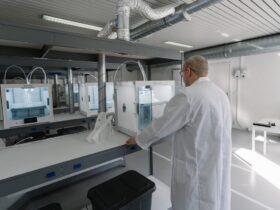Mastering Linux for Professional Use
Welcome, Linux enthusiasts and professionals! Whether you are a seasoned Linux user or just starting to explore the world of open-source operating systems, this blog post is for you. We’ll dive into the advanced usage and customization of Linux, and explore how you can leverage its powerful features to enhance your professional work.
Unveiling Surprising Statistics
Did you know that as of 2021, more than 80% of the world’s servers are powered by Linux? This staggering statistic showcases the dominance of Linux in the professional computing environment. Moreover, Linux is the operating system of choice for major technology companies, including Google, Facebook, and Amazon, due to its unparalleled stability, security, and flexibility.
Understanding Advanced Usage of Linux
Command Line Mastery
One of the key skills that sets professional Linux users apart is their proficiency in the command line interface. In addition to basic commands, such as `ls`, `cd`, and `mkdir`, mastering tools like `grep`, `awk`, and `sed` can significantly boost productivity and efficiency. These commands enable seamless text processing, parsing, and manipulation, essential for delving deep into data analysis and system management.
Shell Scripting and Automation
For professionals, automating repetitive tasks is an indispensable skill. With shell scripting, you can create powerful automation scripts to handle complex workflows, system maintenance, and data processing. Understanding concepts like loops, conditional statements, and functions in scripting languages like Bash opens up a world of possibilities for streamlining your professional work.
System Administration and Security
Deepening your knowledge of Linux system administration is crucial for professional use. This includes understanding user and group management, file permissions, networking configurations, and package management. Furthermore, professionals must grasp the essentials of Linux security, such as implementing firewalls, encryption, and intrusion detection systems, to safeguard critical data and infrastructure.
Performance Tuning and Optimization
To excel in professional environments, it’s vital to fine-tune Linux systems for optimal performance. This involves monitoring system resources, identifying bottlenecks, and leveraging tools like `top`, `iotop`, and `vmstat` to analyze system behavior. Additionally, delving into kernel tuning and optimizing disk I/O yields significant performance enhancements, crucial in demanding workloads such as data processing and server hosting.
Customizing Linux for Professional Work
Personalizing the Desktop Environment
In the professional realm, a well-customized desktop environment can enhance productivity and workflow efficiency. Linux offers a plethora of desktop environments, such as GNOME, KDE, and Xfce, each catering to diverse preferences and work styles. Customizing the desktop layout, appearance, and keyboard shortcuts empowers professionals to create a personalized and ergonomic workspace.
Package Management and Software Development
For professional developers and IT specialists, mastering package management tools like apt, yum, or pacman is essential. Understanding software repositories, dependency resolution, and package versioning ensures seamless software installation and maintenance. Moreover, delving into software development on Linux, whether for web applications, system tools, or device drivers, capitalizes on the platform’s rich development environment and toolchains.
Enterprise Networking and Virtualization
In professional settings, Linux serves as the backbone for enterprise networking and virtualization solutions. Proficiency in setting up and configuring network services, such as DNS, DHCP, and LDAP, is invaluable for IT professionals. Furthermore, understanding virtualization technologies like KVM, Xen, or Docker enables professionals to deploy and manage scalable, efficient, and resilient virtualized infrastructures.
Containerization and Cloud Integration
As the industry shifts towards cloud-based solutions, professionals need to embrace containerization and cloud integration on Linux. Dockers and Kubernetes have become integral tools for deploying, managing, and scaling containerized applications. Understanding cloud platforms like AWS, Azure, and Google Cloud, and seamlessly integrating Linux-based solutions with these platforms, is a vital skill for modern IT professionals.
Applying Linux Mastery in Your Daily Life
Now that we’ve explored the advanced usage and customization of Linux for professional work, let’s discuss how you can apply these skills in your daily life, whether you’re an IT professional, developer, or enthusiast.
Continuous Learning and Practice
Dedicate time to continuous learning and hands-on practice with Linux. Engage with online communities, forums, and technology events to stay updated with the latest advancements and best practices in the Linux ecosystem.
Contribution to Open Source Projects
Consider contributing to open-source projects on platforms like GitHub. By collaborating with the open-source community, you not only enhance your skills but also contribute to the collective growth and improvement of Linux and open-source software.
Building Personal Projects and Solutions
Explore personal projects and solutions that leverage Linux. Whether it’s setting up a personal server, creating custom scripts for automation, or developing open-source software, applying Linux in personal projects enhances your proficiency and creativity.
Professional Development and Certifications
Invest in professional development and certifications related to Linux and open-source technologies. Certifications such as the CompTIA Linux+ and Red Hat Certified Engineer (RHCE) validate your expertise and open doors to new career opportunities.
In Conclusion
Mastering Linux for professional use involves delving into advanced usage, customization, and leveraging the platform’s capabilities to excel in diverse professional domains. By honing your skills in command-line mastery, shell scripting, system administration, performance tuning, and customization, you can elevate your professional work and open new doors for innovation and career growth. Embrace the vast ecosystem of Linux, and let your proficiency in open-source computing propel you toward success in your professional endeavors.
So, what are you waiting for? Dive deeper into Linux, apply these advanced skills in your daily work, and unlock the full potential of this powerful operating system. The Linux community awaits your contributions and successes. Good luck on your Linux journey!
















